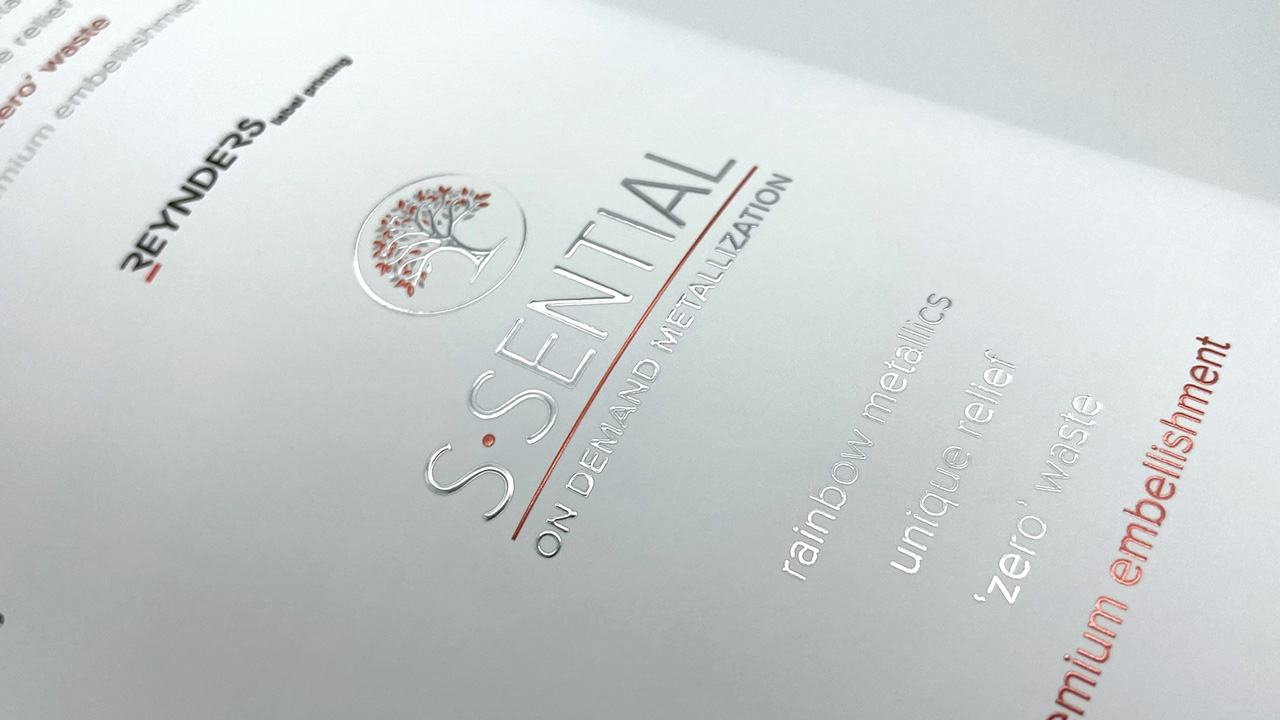Dutch label converter makes repeat investment in Mark Andy to help supply meet demand
Etikettendrukkerij-Noord Nederland (EDNN) has installed a Mark Andy P5 in order to add extra capacity and meet demand from customers.
This is the third Mark Andy press investment made by the Dutch label converter since it was founded in 2005 by Gert Talen. The company first installed an 8-color, 254mm (10in) 2200, then a 430mm (17in) 2200. Chosen for their ‘rugged simplicity’, which has made them reliable performers, the 2200 lines are a world away from where EDNN wanted its next investment to be. And the choice in the market for latest generation technology is extensive, with any number of manufacturers offering high-spec flexo presses.
Building on the reliability of the 2200s, which have seen little more than routine service over the years, the new P5, with its semi-servo control and film package designed for handling unsupported filmic substrates, will build on the company’s product offering.
The P5 has a 430mm web width and is fitted with eight flexo print stations, corona treater, web cleaner, delam/relam, turn bars, two die-cutting stations and full UV curing. According to Timo Donati, Mark Andy’s European sales manager, the P5 will add ‘significant capacity’ to EDNN, both in terms of volume, with its higher speed and product variation with its broad substrate capability.
Currently, more than 80 percent of EDNN’s business is with the food industry, and substrates used include self-adhesive papers as well as PP and PE filmic materials, and while most of the output is for domestic consumption, exports to Germany and the UK are beginning to grow. A typical job for EDNN would be 5,000 to 10,000 in five or six colors, but the fast make-ready and high running speed of the new P5 extend those parameters in both directions.
One significant seasonal job comes from the mussel industry in The Netherlands. Originally three months, but now stretching to five, it provides EDNN with a boost in demand that is all the better for being predictable. The company has also experienced the growth in demand for clear-on-clear or no-label look using PE.
In 2015, Talen sold a majority of the company shares to investors, and Vincent Belksma was recruited to run the business. Having long realised that demand had outstripped capacity, Talen had already begun negotiations for a third press, which resulted in the order for a Mark Andy Performance Series press. ‘We knew that extra capacity would offer our customers more security and relieve the pressure on our staff,’ said Belksma.
The press investment is also part of a restructuring program to make EDNN more efficient, and has reduced turnaround times for weeks to days. Further, EDNN has established processes that have made the production cycle more transparent, and set up an in-house training scheme for youngsters, which although still in its early days, is already beginning to bear fruit. This will allow it to increase its poll of experienced and qualified staff which, according to Belksma, if not resolved, ‘applies a brake to progress with new technology’.
Stay up to date
Subscribe to the free Label News newsletter and receive the latest content every week. We'll never share your email address.

